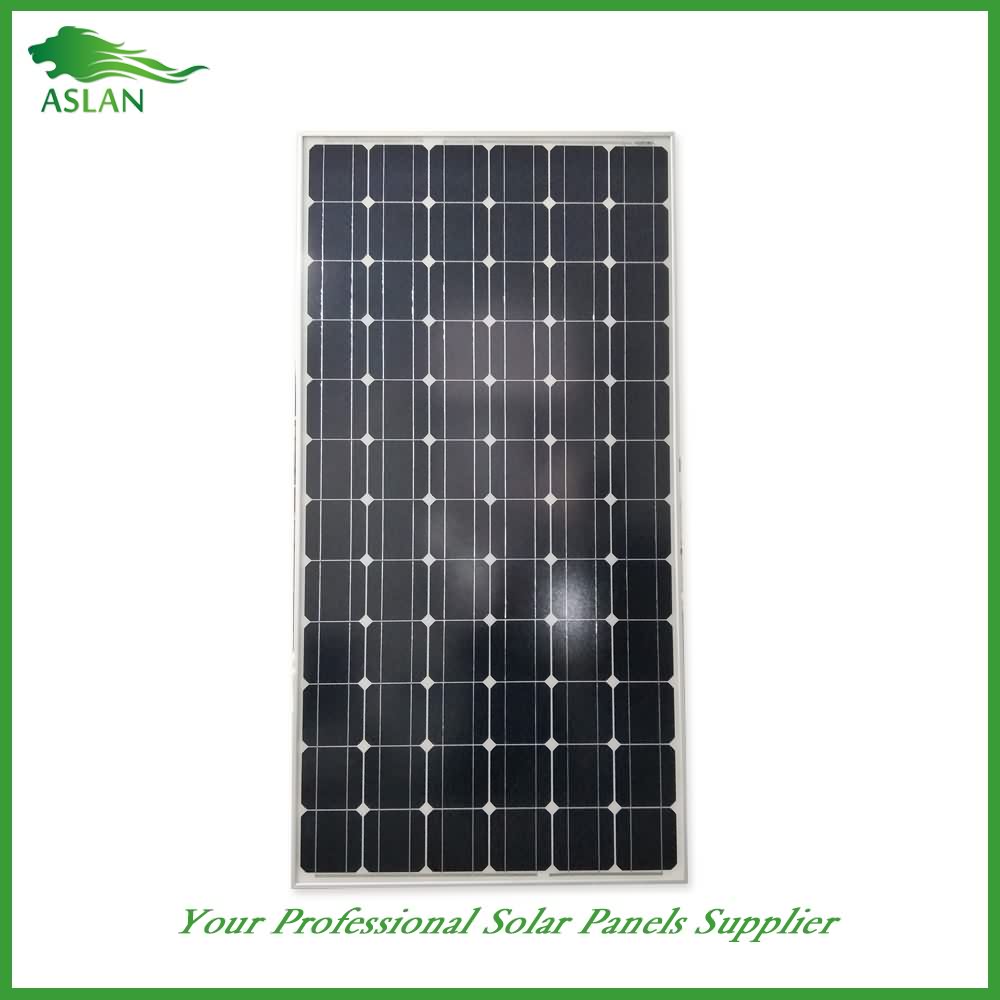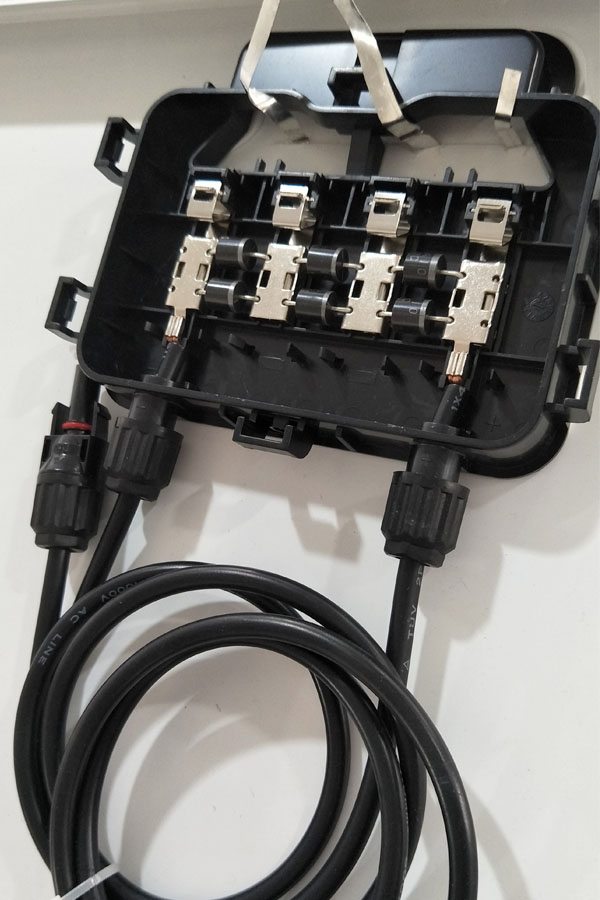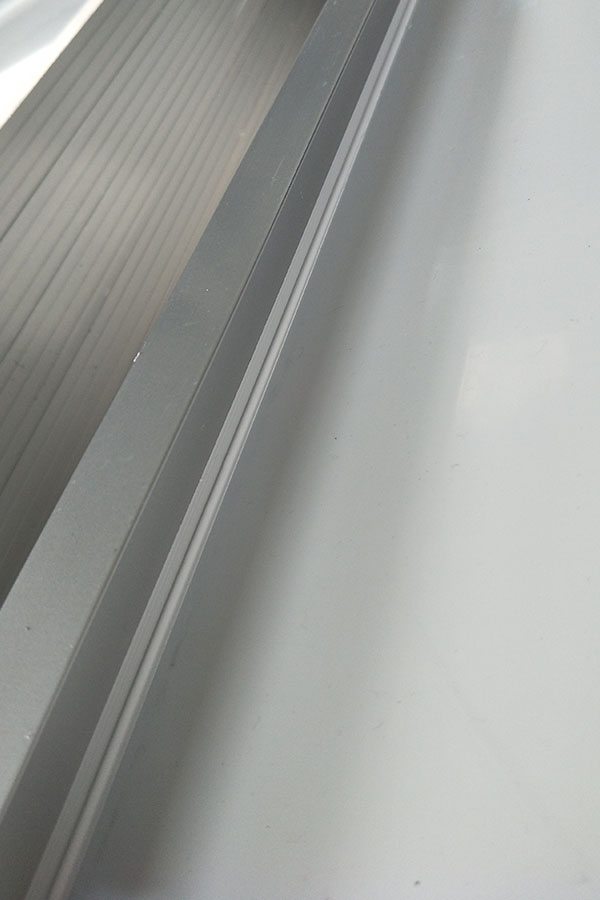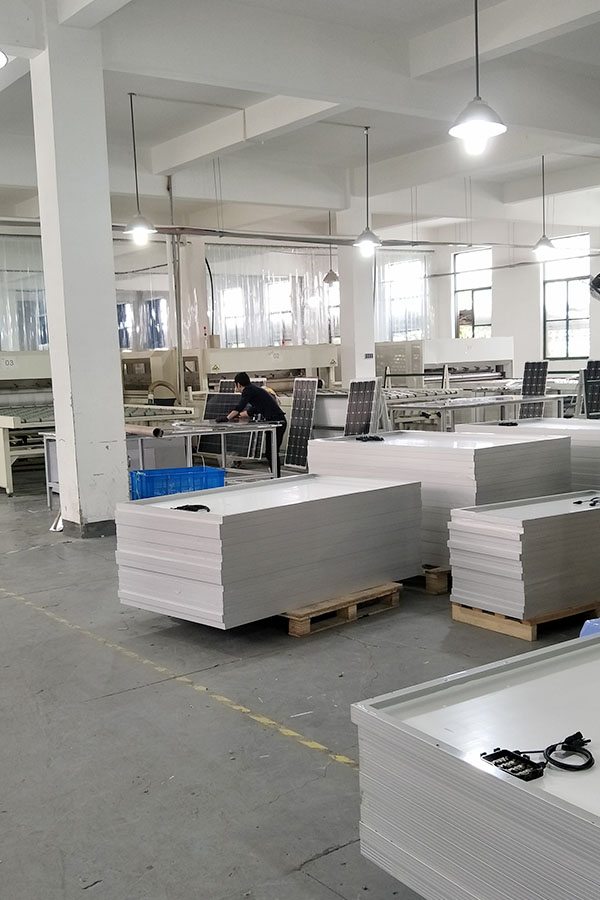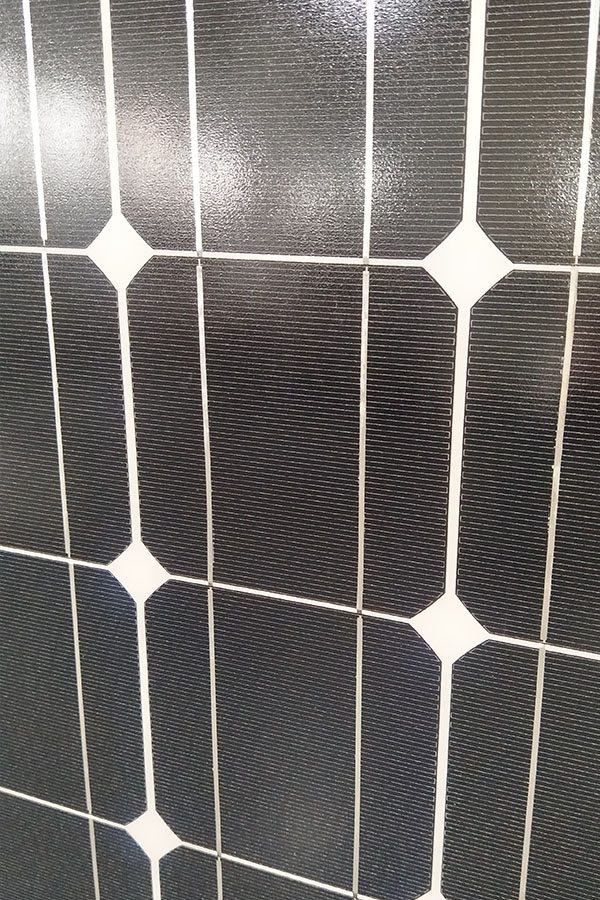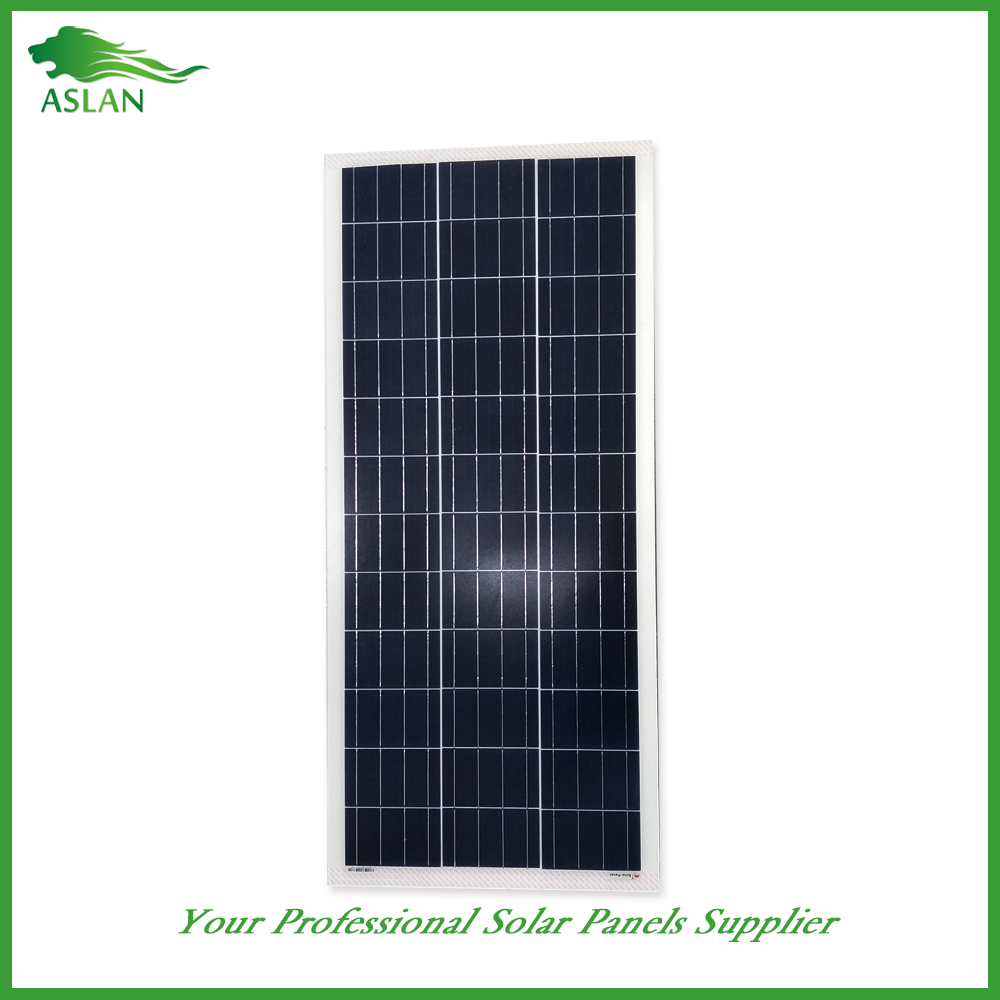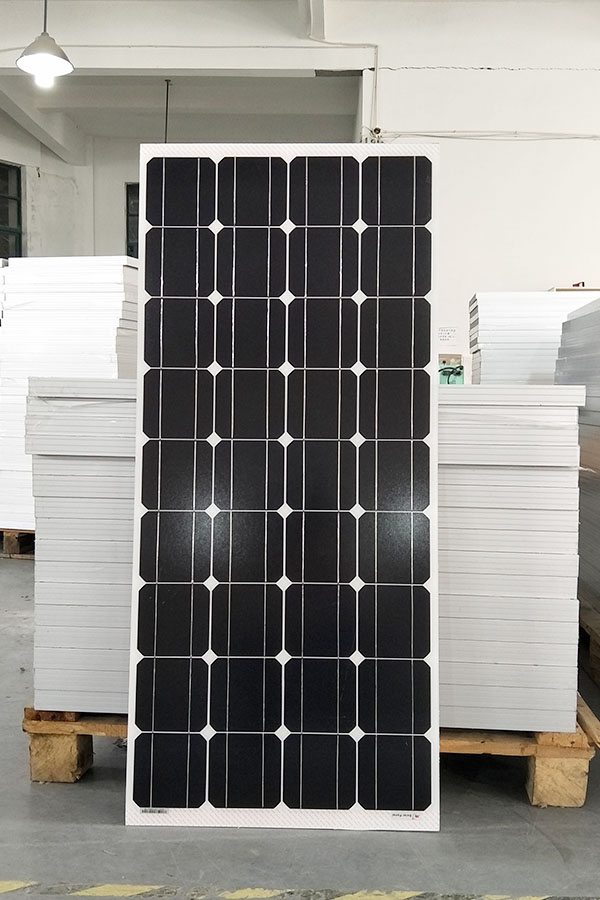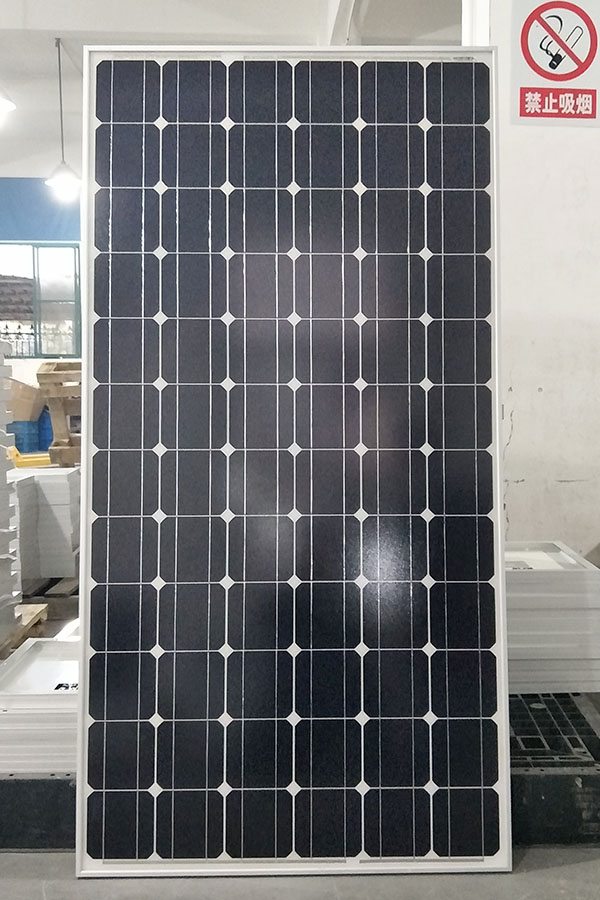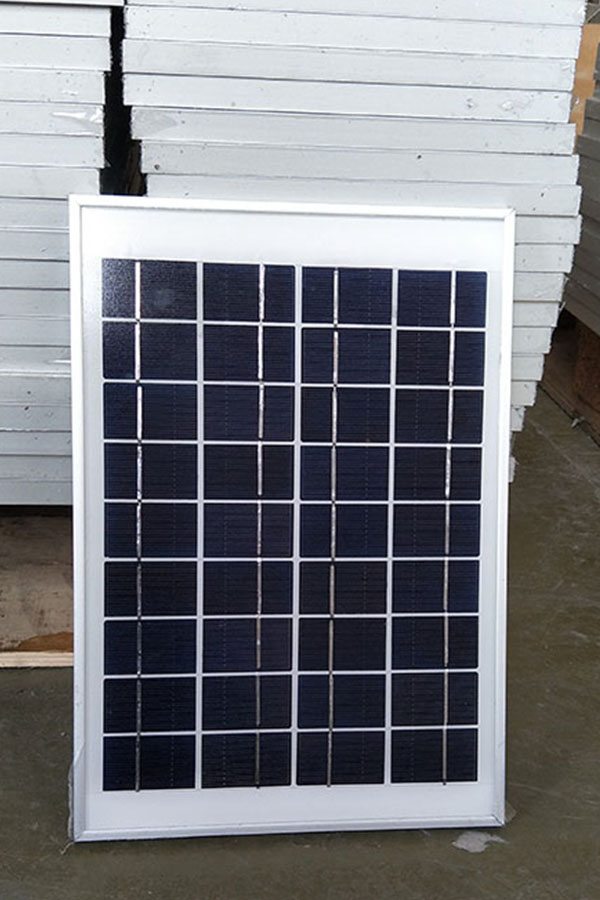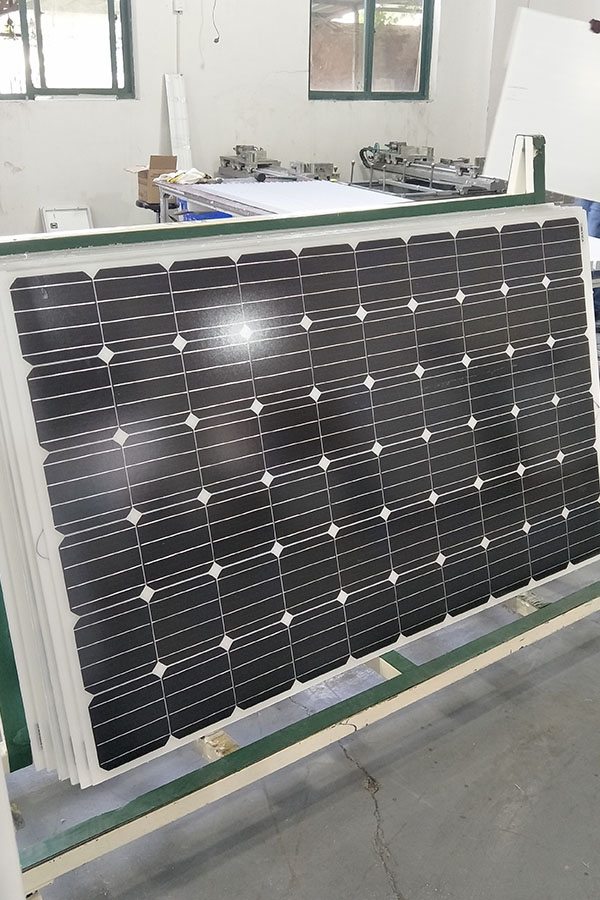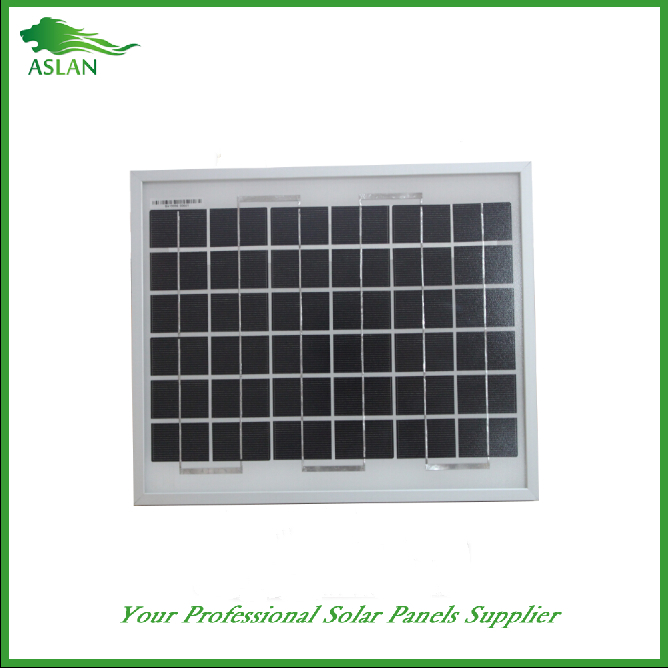Hot sale reasonable price Mono-Crystalline 300W Solar Panel for Angola Manufacturers
Short Description:
With a complete scientific quality management system, good quality and good faith, we win good reputation and occupied this field for Hot sale reasonable price Mono-Crystalline 300W Solar Panel for Angola Manufacturers, Adhering to the business principle of mutual benefits, we have won good reputation among our customers because of our perfect services, quality products and competitive prices. We warmly welcome customers from home and abroad to cooperate with us for common success.
Mono-Crystalline 300W Solar Panel
Technical parameter
Maximum Power(W) 300W
Optimum Power Voltage(Vmp) 37.45V
Optimum Operating Current(Imp) 8.15A
Open Circuit Voltage(Voc) 45.60V
Short Circuit Current(Isc) 8.91A
Mechanical Characteristics
Cell Type Monocrystalline 156x156mm (6 inch)
No of Cell 72 (6x12pcs)
Dimensions 1950x990x50mm
Weight 22.1Kg
Front Glass 3.2mm,High Transmission, Low Iron,Tempered Glass
Junction box IP65 Rated
Output Cable TUV 1×4.0mm2/UL12AWG,Length:900mm
Temperature and Coefficients
Operating Temperature(°C): -40°C ~ + 85°C
Maximum System Voltage: 600V(UL)/1000V(IEC) DC
Maximum Rated Current Series: 15A
Temperature Coefficients of Pmax: -0.47%
Temperature Coefficients of Voc: -0.389%
Temperature Coefficients of Isc: 0.057%
Nominal Operationg Cell Temperature (NOCT): 47+/-2°C
Materials of solar panel
1).Solar Cell——Mono-crystalline solar cell 156*156mm
2).Front Glass——-3.2mm, high transmission, low iron, tempered glass
3).EVA——-excellent anti-aging EVA
4).TPT——-TPT hot seal made of flame resistance
5).Frame——anodized aluminum profile
6).Junction Box——-IP65 rated, high quality, with diode protection
Superiority: high quality anodized aluminum frame, high efficiency long life, easy installation, strong wind resistance, strong hail resistance.
Features
1. High cell efficiency with quality silicon materials for long term output stability
2. Strictly quality control ensure the stability and reliability, totally 23 QC procedures
3. High transmittance low iron tempered glass with enhanced stiffness and impact resistance
4. Both Polycrystalline and Mono-crystalline
5. Excellent performance in harsh weather
6. Outstanding electrical performance under high temperature and low irradiance
Quality assurance testing
Thermal cycling test
Thermal shock test
Thermal/Freezing and high humidity cycling test
Electrical isolation test
Hail impact test
Mechanical, wind and twist loading test
Salt mist test
Light and water-exposure test
Moist carbon dioxide/sulphur dioxide
Silicio Multicristalino para Aplicaciones Fotovoltaicas
Mechanical characterization of wafer equivalents from wire-sawing to thin film deposition
TERESA ORELLANA
Fraunhofer Institute for Solar Energy Systems (ISE)
Freiburg, Alemania
The epitaxial wafer equivalent concept at Fraunhofer ISE promises product cost reduction by depositing 20 μm crystalline silicon thin film by CVD on a low cost silicon substrate [2].The substrate of the wafer equivalent should provide a good mechanical strength while the epitaxial layer is responsible for the electrical performance of the final solar cell (Epi-Cell).
At Fraunhofer ISE, multicrystalline silicon blocks between 20 kg and 250 kg are crystallized via directional solidification. The crystallization is done in a Vertical Gradient Freeze (VGF) furnace with graphite heaters.
Silicon is put into a fused silica crucible (SiO2), which is coated with a silicon nitride (Si3N4) liner to prevent a chemical reaction between crucible and silicon.
Multicrystalline high boron doped silicon and up-graded metallurgical silicon (UMG-Si) are crystallized for manufacturing the substrate of the epitaxial wafer equivalent, thus saving the costs for high purity silicon material. Using silicon as a substrate reduces problems arising from differences in thermal expansion coefficients and misfit of lattice parameters. The Epi-Cell can also benefit from manufacturing cost reduction if the wafer equivalent presents a sufficient mechanical strength to ensure subsequent high processing yield until the production of final solar cells.
Seminarios Internacionales de
Fronteras de la Ciencia de Materiales
Aula de Seminarios
Departamento de Ciencia de Materiales
E. T. S. de Ingenieros de Caminos, UPM
C/ Profesor Aranguren s.n.
28040 Madrid
Para más información contactar con:
Dr. José Ygnacio Pastor
(+34) 913 366 684.
jypastor@mater.upm.es
